The need for more nurses in Spokane and the Inland Northwest area is a growing concern for healthcare leaders, employers and educators alike. Eastern Washington University is working to eliminate barriers and get more nurses into the profession.
On May 12, EWU held an Eastern Edge community forum, The Need for Nurses: From Pipeline to Provider, focused on finding solutions to the regional nursing shortage and a persistent gap in access to healthcare for rural and underserved populations.
The event, which is one in a series sponsored by WSECU and PEMCO Insurance, along with additional supporting sponsors, drew nearly 120 attendees who filled the Georgian Room at the Spokane Club.
The forum, appropriately scheduled during National Nurses Week, included representatives of the area’s largest healthcare organizations, CHAS Health, Providence, MultiCare as well as Asuris Northwest Health. The conversation was moderated by Karina Elias of the Spokane Journal of Business.
Eight healthcare experts served on two panels, and shared why education at all stages is important. Donna Bachand, EWU nursing program administrator and department chair for nursing, was listening carefully to the exchange of ideas during the forum.
“I was inspired by such dedicated leaders and took away many creative ideas for preparing our future Eagle nurses,” Bachand said.
Several of the 40 students admitted in the inaugural cohort in the Bachelor of Nursing Program at EWU attended the forum and were introduced to a cheering supportive audience.
A total of 132 applications were submitted for the first cohort positions, 80 of those students having taken all or most of their credits at EWU.
In addition to generous support from the Washington State Legislature, which recently approved $4.6 million in funding, private donors have stepped up to ensure that students who qualify have access to scholarships that help along the way.
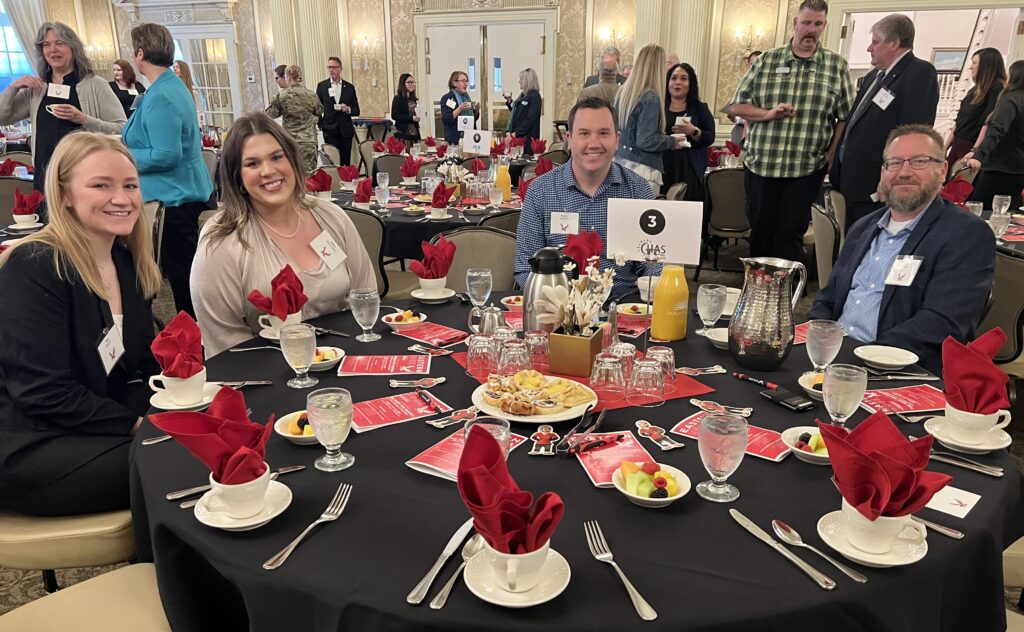
Alumni sweethearts and longtime EWU supporters, Ken and Kathy Privratsky, made a $250,000 leadership gift, in addition to other recent Privratsky gifts, in the hope of inspiring others to follow suit and give to the Proud Eagle Scholarship Fund. The scholarships will help students gain vital expertise in a crucial industry at a time of widespread nursing shortages. (Click on this link to learn how you can support EWU Nursing.)
Additionally, getting the word out early on to students who are in high school, middle school and even elementary school can make a difference in inspiring talented students to pursue nursing in college.
In fact, Providence Holy Family Hospital recently invited fifth graders from nearby Lidgerwood Elementary school to come for a tour, said Adam Richards, chief nursing officer for Providence Holy Family Hospital.
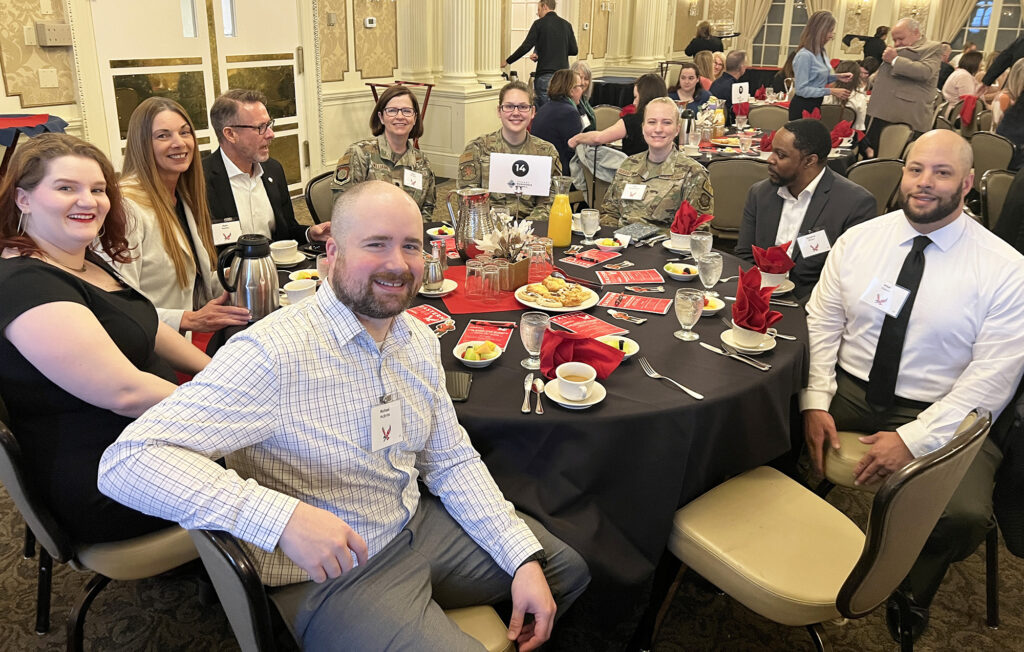
Panelists discussed the toll that the pandemic took on nurses, who were overburdened by long hours on their feet, staff shortages and going through illness and death with patients and their families. Some even left the profession.
Future nurse training should encompass strategies to build resilience while, at the same time, industry leaders continue to find ways to improve job conditions for nurses.
Technology will increasingly help to reduce ancillary burdens for nurses and provide them with more time to do what they do best – care for patients.
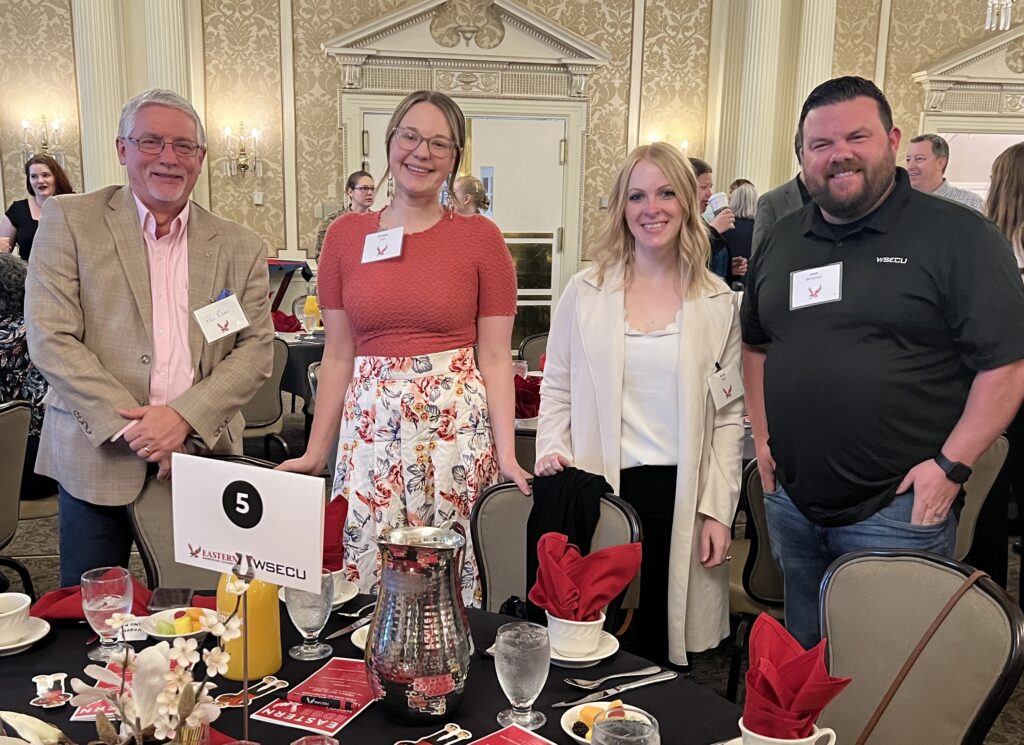
Jennifer Graham of MultiCare said that MultiCare Deaconess Hospital introduced several robots to assist nursing staff, last winter. The robots help with picking up filled prescriptions and other medical supplies, delivering specimen samples to the lab, and other errands that save nurses time and some wear on their feet.
“That robot has rolled the equivalent of three and a half million footsteps for nurses,” Graham said.
Recruiting nurses to serve in rural communities continues to be difficult, said Brady Cass ’12, president of Asuris Northwest Health.
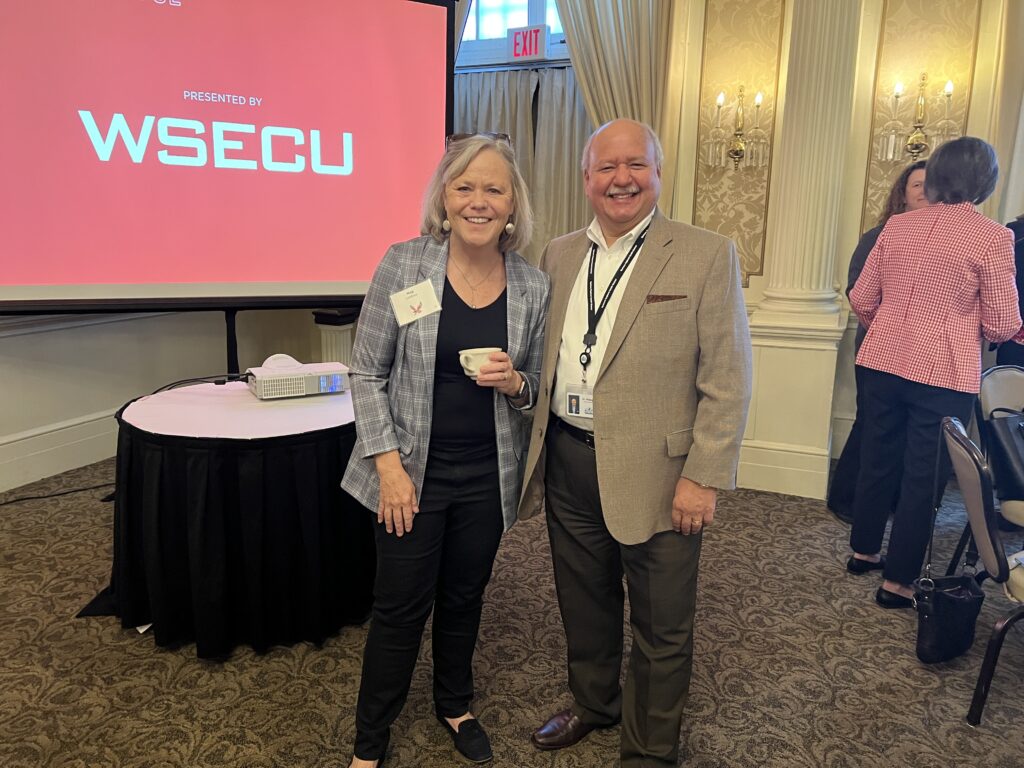
Cass pointed out that while advances in telehealth have improved access to healthcare for some rural residents, communities without broadband internet coverage still lack timely access to needed medical services.
Bilingual and multilingual skills are in increasing demand. Nurses with those language skills are better able to connect with patients to develop a rapport that results in a better quality of care.
Jennifer Vigil of MultiCare said language is an essential part of providing quality care. “That ties in directly in with cultural competencies and being able to build that understanding between the caregiver and the patient.”
Will Matney of CHAS Health said language skills are vital in this relationship-based profession.
“If we are able to engage on that level with a population that doesn’t speak English, I think the impacts are endless – especially in our community,” Matney said.
Thank you to the following panelists:
Rural and Underserved Populations Panel
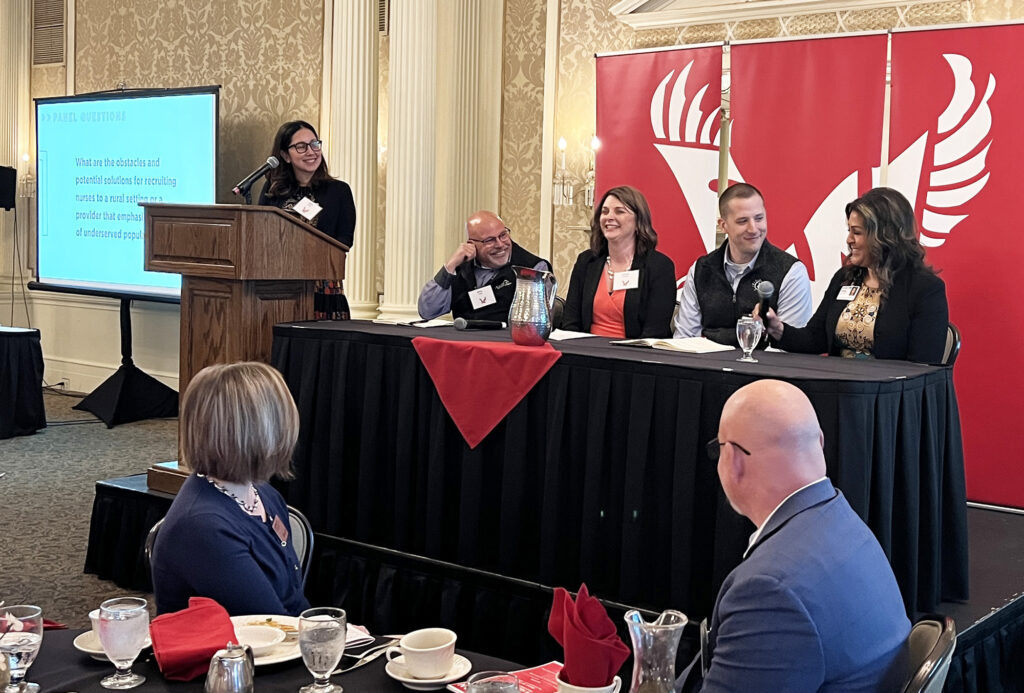
Brady Cass ‘12, Asuris Northwest Health; Jennifer Larmer ’97 &’05, Lincoln Hospital District #3; Will Matney, CHAS Health; Jennifer Vigil, MultiCare.
Spokane’s Nursing Shortage Panel
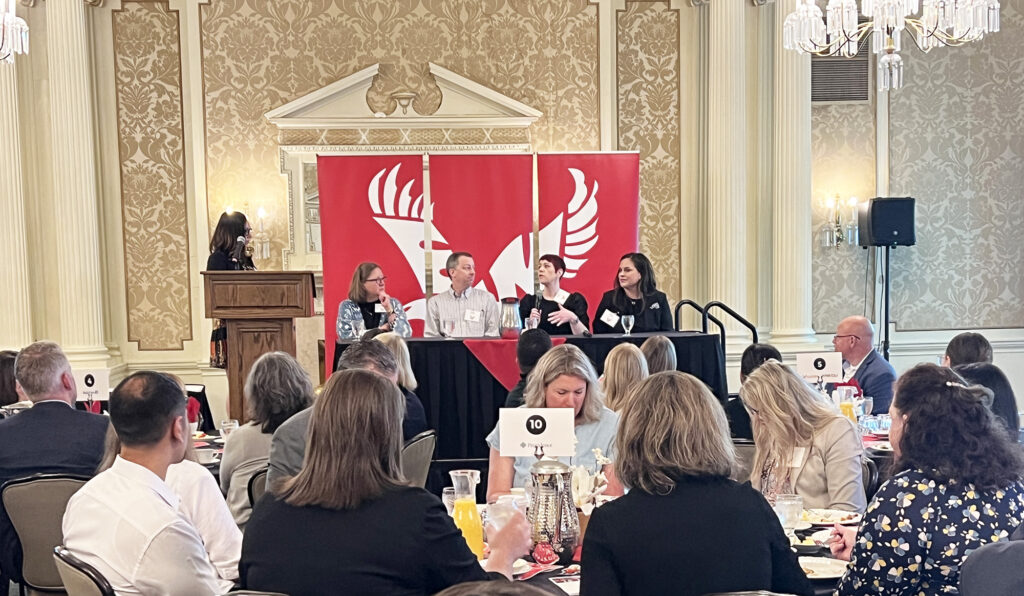
Cindy Fitzgerald, Providence; Adam Richards, Providence; Jennifer Graham, MultiCare; Kelley Charvet ‘00, CHAS Health.
Thank you to the following sponsors:
Series Presenting Sponsors:
WSECU
Series Major Sponsor:
PEMCO
Media Sponsor:
Spokane Journal of Business
Supporting Sponsors:
Greater Spokane Inc.
Student Success Sponsors:
MultiCare Health System
CHAS Health
Providence
Friends of Fairchild AFB:
Girl Scouts of Eastern Washington & Northern Idaho
Spokane Workforce Council
Community Partners:
Downtown Spokane Partnership
Spokane Regional Health District
University District
Greater Spokane Valley Chamber of Commerce
West Plains Chamber of Commerce
College Success Foundation